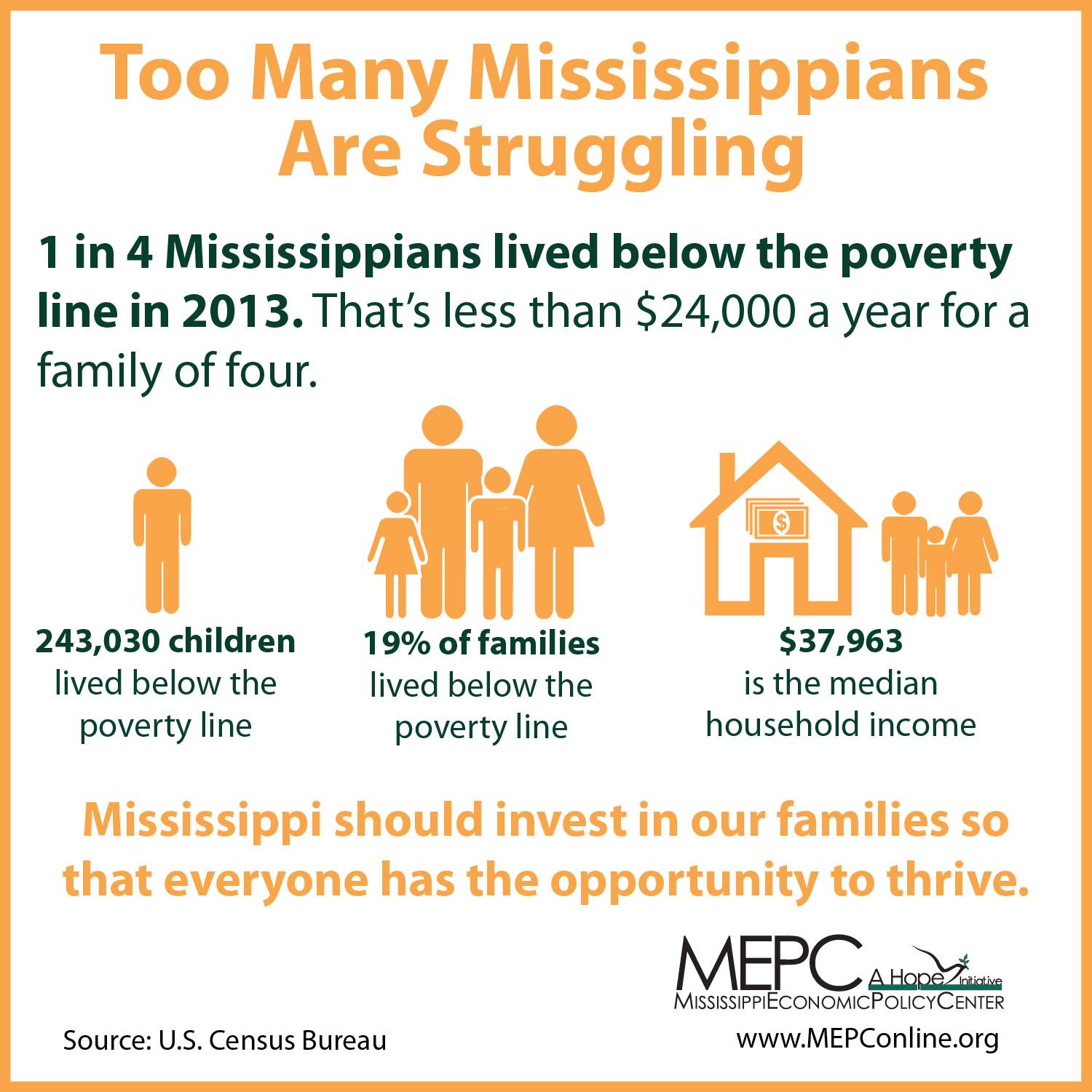Poverty in Mississippi has remained constant at 24% from 2012 to 2013, according to the U.S. Census Bureau. Approximately 1 in 4 Mississippians lived below the poverty line in 2013 at a time when poverty rates across the U.S. have decreased. Mississippi has the highest rate of poverty in the nation. The continued rise in poverty in Mississippi shows the need for a statewide strategy to come up with solutions to the problem.
More than likely you know at least one person who is impoverished. In Mississippi 19% of families live below the poverty line as well, meaning you perhaps know an entire family that lives in poverty. Factors contributing to poverty are well known, such as chronic unemployment or underemployment. As these economic conditions become more commonplace, however, we have become socially conditioned to believe poverty is a foregone conclusion. It’s not.
With a median household income of $37,963, Mississippians are finding that the cost of living is rising at a much faster rate than their wages. This has a significant impact on the state’s poverty rate and is a leading contributor to the 243,030 children in Mississippi who lived below the poverty line in 2013. The economic security a family and community need to thrive is increasingly hard to come by for many, and the situation is increasingly becoming worse.
To begin undoing the ravages of poverty requires collective will and determination. The creation of a poverty task force by the Legislature would be show that the state government recognizes the existence of poverty and would like to find real solutions. They must include the development of a state-wide, two-generation strategy that focuses on both the child and parent in trying to lift the whole family out of poverty. Further, working toward the creation of an integrated basic education and skills training (I-BEST) model in Mississippi would begin to reincorporate so many of our community members who interrupted their education. Before we can take any of these steps, however, Mississippi must first acknowledge that poverty exists and surrounds us in very tangible ways.
Otherwise, I will be reporting the same sober news next year.
You can help find solutions to lift people out of poverty at our 2014 Policy Conference: Tackling Persistent Poverty – Why Here? Why Now? Register Today.








